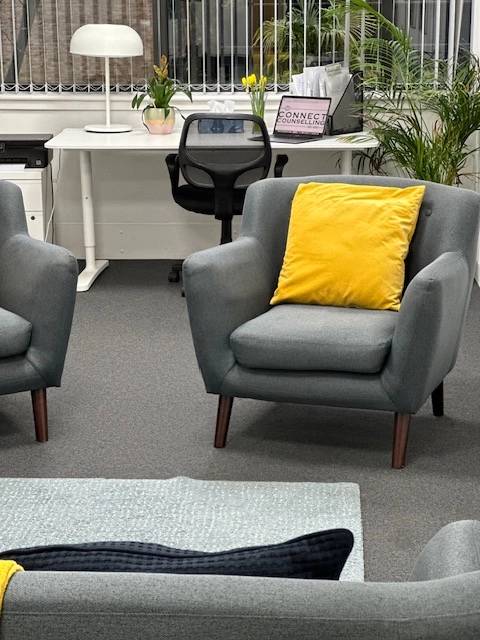- Home
- Counsellor in Farndish
Counsellor in Farndish
 Counsellors play a pivotal role in the realm of mental health, offering guidance, support, and therapeutic interventions to individuals, couples, families, and groups facing a wide array of challenges. In this comprehensive guide, we delve into the world of Counselling, exploring the role of Counsellors, their training and qualifications, the benefits of Counselling, and considerations for finding the right counsellor for your needs.
Counsellors play a pivotal role in the realm of mental health, offering guidance, support, and therapeutic interventions to individuals, couples, families, and groups facing a wide array of challenges. In this comprehensive guide, we delve into the world of Counselling, exploring the role of Counsellors, their training and qualifications, the benefits of Counselling, and considerations for finding the right counsellor for your needs.
The Role of Counsellors:
Counsellors, also known as mental health Counsellors or psychotherapists, are highly trained professionals who specialize in providing Counselling services to individuals seeking support for mental health concerns, emotional difficulties, life transitions, and relationship issues. They work in various settings, including private practices, community mental health centers, schools, hospitals, and online platforms.
The role of Counsellors encompasses:
- Assessment and Diagnosis: Counsellors conduct comprehensive assessments to understand clients' presenting concerns, symptoms, and treatment goals. While Counsellors do not diagnose mental health disorders in the same way psychiatrists or clinical psychologists do, they may still assess and identify patterns of behavior and emotional distress.
- Therapeutic Interventions: Using evidence-based techniques and therapeutic modalities, Counsellors help clients explore their thoughts, emotions, and behaviors, develop coping skills, and navigate challenges more effectively. They employ a variety of approaches, such as cognitive-behavioral therapy (CBT), psychodynamic therapy, person-centered therapy, and mindfulness-based therapy, tailored to meet the unique needs of each client.
- Support and Empowerment: Counsellors provide a safe, nonjudgmental space for clients to express themselves, process their experiences, and work towards positive change. They offer empathy, validation, and practical guidance, empowering clients to take ownership of their mental health and well-being.
- Collaboration and Advocacy: Counsellors collaborate with clients to set goals, develop treatment plans, and monitor progress over time. They may also advocate for clients' needs and rights, connecting them with community resources, support services, and other healthcare professionals as needed.
Types of Counselling Specializations:
Counsellors specialize in various areas of practice to address the diverse needs of their clients. Some common Counselling specializations include:
- Individual Counselling: Individual Counselling focuses on supporting individuals in addressing personal concerns, overcoming obstacles, and improving emotional well-being. It provides a confidential space for self-exploration, growth, and healing.
- Couples Counselling: Couples Counselling, or marriage Counselling, helps couples improve communication, resolve conflicts, and strengthen their relationship bonds. It addresses issues such as communication breakdowns, intimacy issues, infidelity, and life transitions.
- Family Counselling: Family Counselling involves working with families to improve communication, resolve conflicts, and build healthier relationships. It addresses family dynamics, roles, and patterns of interaction to foster understanding, cohesion, and support.
- Trauma Counselling: Trauma Counselling focuses on helping individuals heal from past traumatic experiences, such as abuse, violence, accidents, or natural disasters. It provides a safe and supportive space for processing trauma, reducing symptoms of post-traumatic stress disorder (PTSD), and rebuilding resilience.
- Addiction Counselling: Addiction Counselling supports individuals struggling with substance abuse, addictive behaviors, and co-occurring mental health disorders. It addresses underlying issues contributing to addiction, develops coping skills for recovery, and promotes relapse prevention.
- Career Counselling: Career Counselling assists individuals in exploring career options, setting career goals, and overcoming barriers to career success. It provides assessments, vocational guidance, and support in navigating career transitions and challenges.
- Child and Adolescent Counselling: Child and adolescent Counselling focuses on supporting children and teens in managing emotions, building self-esteem, and coping with developmental challenges. It addresses issues such as anxiety, depression, bullying, academic stress, and family conflicts.
Counselling Services Near You
Local Farndish counselling sessions are available with myself Anne-Marie at Connect Counselling in Bedford. Just contact me and I can explain the next steps
Benefits of Counselling:
Counselling offers numerous benefits for individuals seeking support for mental health concerns, emotional difficulties, and life challenges:
- Emotional Support: Counselling provides a safe and empathetic space for clients to express their thoughts, feelings, and concerns. Counsellors offer validation, encouragement, and compassionate listening, helping clients feel understood and accepted.
- Skill-Building: Counselling equips clients with practical coping skills, communication techniques, and problem-solving strategies to navigate life's challenges more effectively. Clients learn to identify and challenge negative thought patterns, regulate emotions, and improve interpersonal relationships.
- Insight and Self-Awareness: Through Counselling, clients gain deeper insight into their thoughts, emotions, and behaviors, as well as the underlying factors contributing to their struggles. Increased self-awareness allows for personal growth, self-discovery, and the development of healthier coping mechanisms.
- Symptom Reduction: Counselling is effective in reducing symptoms of various mental health disorders, including anxiety, depression, PTSD, and substance abuse. Counsellors work collaboratively with clients to develop personalized treatment plans tailored to their specific needs and goals.
- Improved Relationships: Counselling can enhance interpersonal relationships by improving communication, empathy, and conflict resolution skills. Couples and family therapy help individuals and loved ones navigate relationship challenges, strengthen bonds, and foster a sense of connection and support.
- Enhanced Quality of Life: Ultimately, Counselling can lead to an improved overall quality of life by promoting greater emotional well-being, resilience, and self-empowerment. Clients report increased satisfaction with life, greater fulfillment in relationships and work, and a renewed sense of hope and purpose.
Finding the Right Counsellor Near Farndish
Finding the right counsellor is essential for a positive Counselling experience. Here are some considerations to keep in mind when searching for a counsellor:
- Credentials and Licensure: Look for Counsellors who are licensed or certified in their respective fields and have the appropriate education, training, and experience. Licensed Counsellors adhere to professional standards of ethics and practice and participate in ongoing professional development.
- Specialization and Expertise: Consider Counsellors' areas of specialization, expertise, and experience working with clients who have similar concerns or backgrounds. Look for Counsellors who have training and experience in evidence-based therapies relevant to your needs.
- Therapeutic Approach: Research different therapeutic approaches and consider what resonates with you. Some common approaches include cognitive-behavioral therapy (CBT), psychodynamic therapy, person-centered therapy, and mindfulness-based therapy. Choose a counsellor whose approach aligns with your preferences and goals.
- Compatibility and Rapport: The therapeutic relationship is essential for the success of Counselling. Schedule initial consultations with potential Counsellors to assess their communication style, personality, and approach to therapy. Trust your instincts and choose a counsellor with whom you feel comfortable and understood.
- Logistics and Accessibility: Consider practical factors such as location, availability, and fees when selecting a counsellor. Determine whether you prefer in-person sessions, online Counselling, or a combination of both, and inquire about insurance coverage or sliding scale fees if cost is a concern.
- Reviews and Referrals: Seek recommendations from trusted sources, such as friends, family members, or healthcare providers, who have had positive experiences with Counsellors. Read online reviews and testimonials to gain insight into other clients' experiences and satisfaction with the counsellor's services.
Counsellors play a vital role in supporting individuals' mental health and well-being by providing compassionate and evidence-based care. From individual Counselling and couples therapy to family Counselling and trauma
When you are ready to start looking seriously at working with a counsellor in Farndish or any of the surrounding areas such as Abbotsley, Ampthill, Bedford, Biddenham, Bletsoe, Blunham, Bromham, Campton, Cardington, Clapham, Clifton, Clophill, Colmworth, Cotton End, Cranfield, Dunton, Elstow, Eyeworth, Farndish, Felmersham, Flitton & Greenfield, Flitwick, Great Barford, Harrold, Haynes, Henlow, Hinwick, Ickwell, Kempston, Keysoe, Knotting, Lidlington, Little Staughton, Marston Moretaine, Maulden, Melchbourne, Millbrook, Milton Ernest, Newton Bromswold, Northill, Odell, Old Warden, Pavenham, Pertenhall, Podington, Potton, Pulloxhill, Ravensden, Renhold, Riseley, Roxton, Sharnbrook, Shefford, Shillington, Silsoe, Southill, St Neots, Stevington, Stewartby, Sutton, Tempsford, Thurleigh, Turvey, Upper & Lower Gravenhurst, Wharley End, Willington, . Then please contact me at Connect Counselling Bedford and I will be more than happy to talk you through your next steps to making your life better.

 Counsellors play a pivotal role in the realm of mental health, offering guidance, support, and therapeutic interventions to individuals, couples, families, and groups facing a wide array of challenges. In this comprehensive guide, we delve into the world of Counselling, exploring the role of Counsellors, their training and qualifications, the benefits of Counselling, and considerations for finding the right counsellor for your needs.
Counsellors play a pivotal role in the realm of mental health, offering guidance, support, and therapeutic interventions to individuals, couples, families, and groups facing a wide array of challenges. In this comprehensive guide, we delve into the world of Counselling, exploring the role of Counsellors, their training and qualifications, the benefits of Counselling, and considerations for finding the right counsellor for your needs.